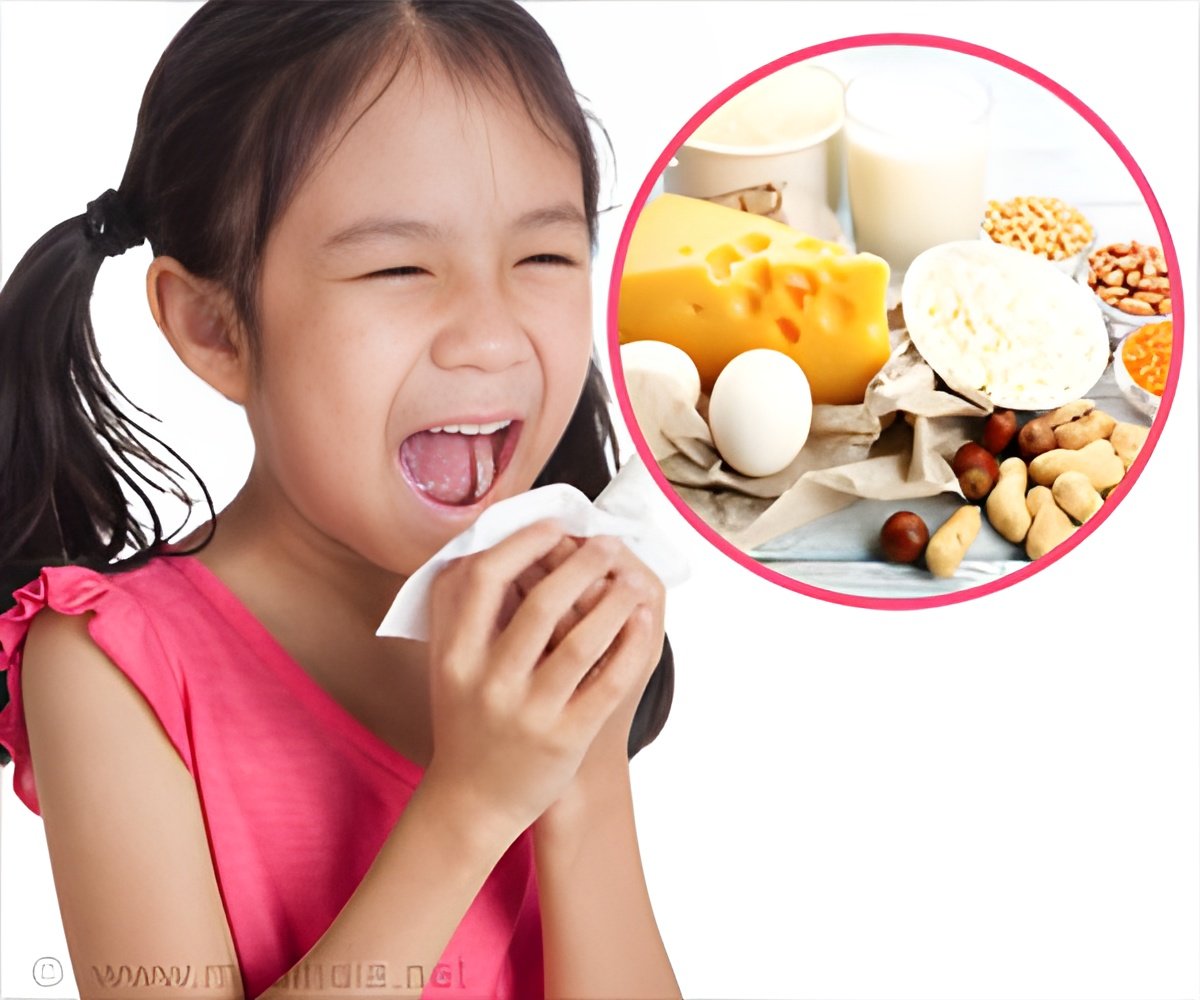Flu or common cold often go unnoticed in children. The reason could be that a child may be allergic to certain foods.

Further, the study showed that food tolerance is acquired and specific cells in the body, known as T-cells are triggered following food consumption. Without these cells, there would be a strong immune response towards macromolecules (Very large molecules, such as protein, that are commonly created by polymerization of smaller subunits (monomers) present in food.
The study performed was first of its kind that illustrated consuming normal diet kindles cells in the gut that suppresses the rejection of food by the immune system. The study further goes on to explain how food tolerance emerges over time in normal individuals and why children have limited exposure to novel foods and are more prone to food allergies.
Similar to pathogens, food too exhibits macromolecular markers called as antigens that inform the immune system of a foreign entity. "Antigen-free" mice models were fed a novel test protein, example egg protein ovalbumin. This induced the development of immunosuppressive T-regulatory, or “Treg” cells, in the gut, which acted as a block to the immune response to that particular protein. The results were however, un-explanatory to researchers in real-life terms. To further substantiate, the “antigen-free” models were re-designed and raised in a germ free environment. The animals were given an “elemental” diet of amino acids – a protein building block. As the mice were naive, they had little or no previous contact with antigenic proteins and macromolecules.
By means of molecular marker analysis, researcher and colleagues found that antigen-free mice used were depleted of Tregs in the small intestine, but a greater proportion of these Tregs were present in germ-free counterparts fed a "normal" protein diet. Thus suggesting that the protein contained in food activates the development of Tregs. It also showed how gut of normal mice can suppress a dangerous immune response to incorporated proteins.
What is Food Allergy?
It is an abnormal response of the body to certain kinds of food. It differs greatly than food tolerance, which does not affect the immune system, though in both cases symptoms might be similar.Symptoms of Allergy in Children
- Atopic dermatitis or eczema (skin rashes or hives)
- Asthma (breathing difficulty)
- Stomach upset
- Sneezing, coughing, itchy eyes or a runny nose
Symptoms of Delayed Food Allergy
- Swelling in the small bowel
- Constipation and/or diarrhea
- Frequent distress and crying
- Raise of knees to chest with tummy pain
- Eczema
- Poor growth
- Vomiting due to reflux
Common Triggers of Allergy in Children
- Foods: peanuts, eggs, milk and milk products
- Indoors: pet/normal hair or fur, mold, dust mites
- Outdoors: plant and tree pollen, insect bites or stings
- Irritants: car exhaust, perfume, cigarette smoke
Treatment and Prevention of Food Allergies
There is no medication as such to prevent food allergy. However, the tips below may be useful:- Avoid foods that your child is allergic to and also similar foods in that group.
- If breastfeeding, avoid foods that can cause allergy to infant as small amounts of allergen may be transmitted to child through breast milk causing a reaction.
- Give vitamins and minerals to the child if they are unable to digest certain types of food. But, discuss before with child's physician.
- In some cases, certain foods may be given after one year under physician direction to assess if child has outgrown the allergy. Allergies may be short lived in children and food may be well tolerated after the age of 3 to 4 years.
- Try to breastfeed your infant for the first six months.
- During child's first year of life, refrain from using cow's milk, wheat, eggs, peanuts and fish.
- Abstain from giving solid foods until the child becomes six months or older.
1. New Study Indicates Why Children Are Likelier To Develop Food Allergies. Available from: http://www.liai.org/pages/Charles_Surh?mode=save_and_view. Accessed Feb 1 2016.
3. Food allergies in children. Available from: http://www.chw.org/medical-care/asthma-allergy-and-clinical-immunology-center/conditions/allergy/types-of-allergens/foods/. Accessed Feb 2 2016.
4. Food Allergy in Babies and Children. Available from: http://www.allergyuk.org/childhood-food-allergy/food-allergy-in-babies-and-children. Accessed Feb 2 2016.
Source-Medindia















